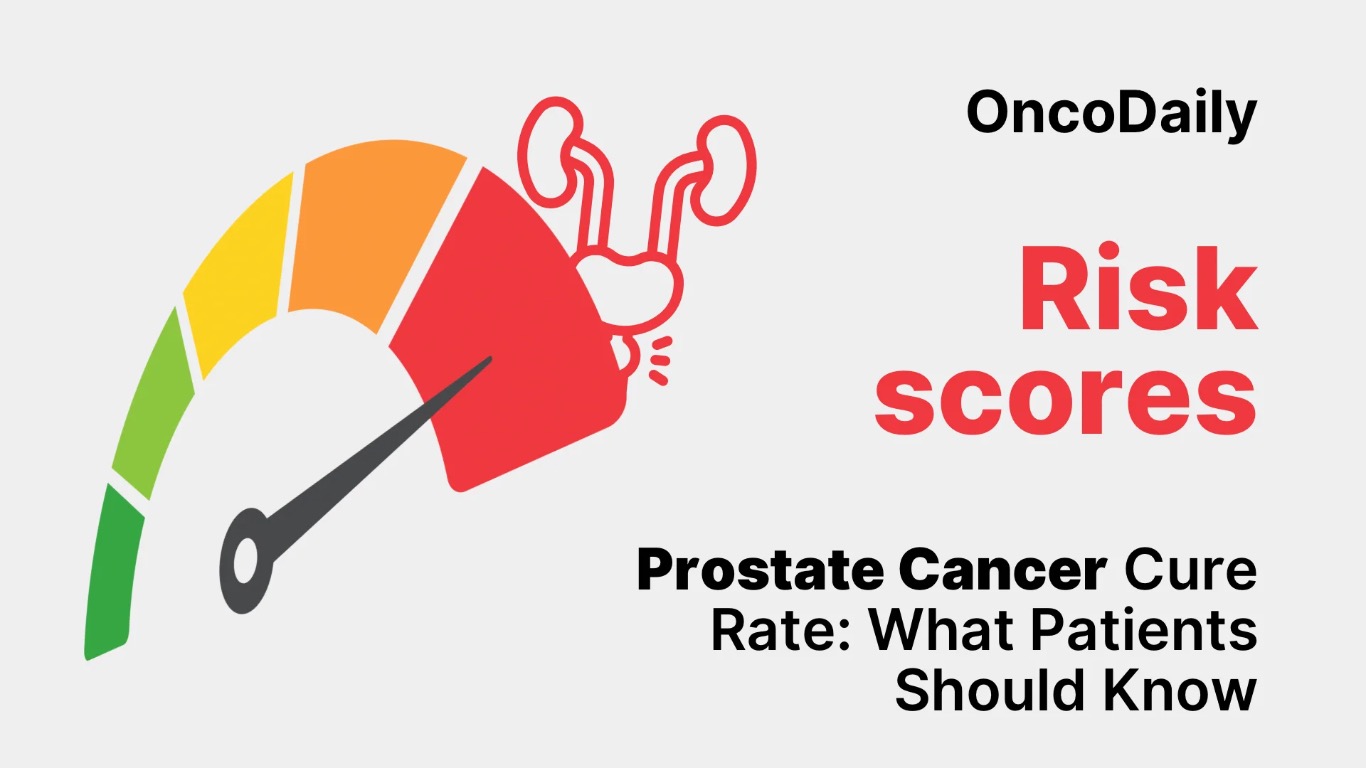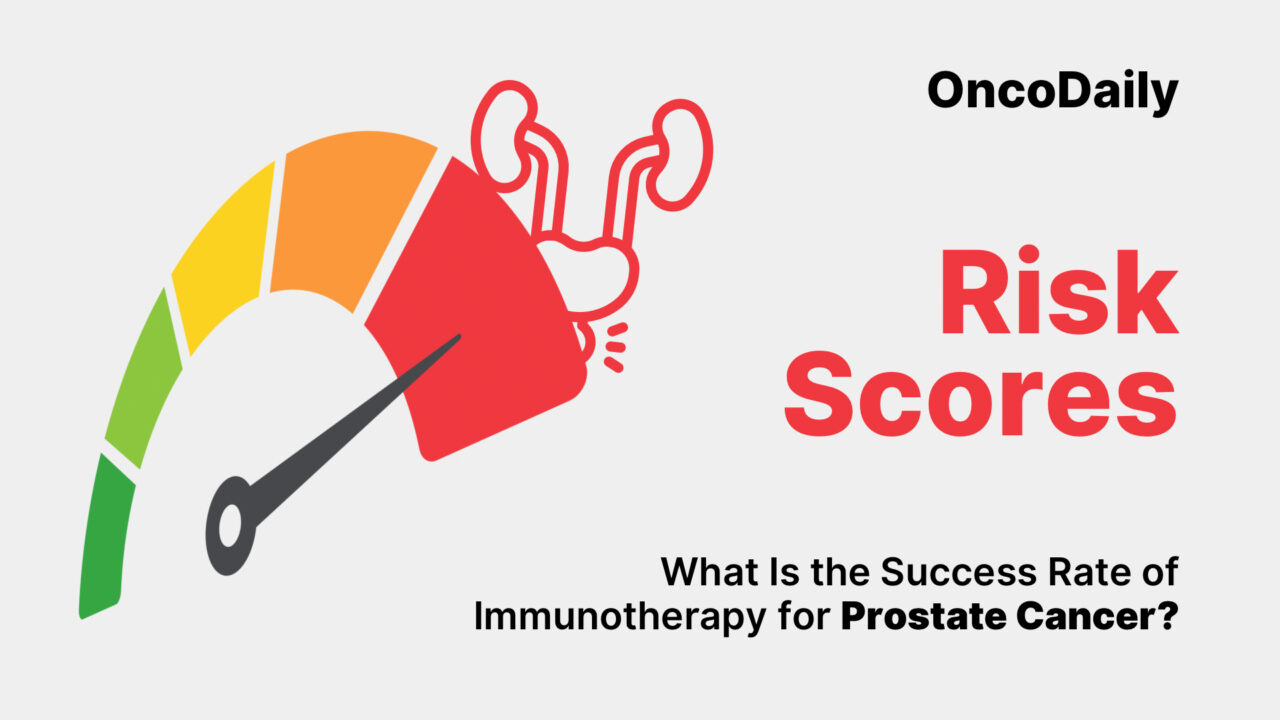The immunotherapy success rate for prostate cancer has become a key topic in modern oncology as patients seek advanced treatments that extend survival with fewer side effects. Prostate cancer remains one of the most frequently diagnosed cancers among men, with over 1.4 million new cases worldwide each year (Sung et al., 2021). Although surgery, hormone therapy, and chemotherapy have long been the cornerstones of treatment, immunotherapy is emerging as a potential option, especially for those with advanced disease. But the question remains: what is the real immunotherapy success rate for prostate cancer?

Read More About Immunotherapy for Prostate Cancer on OncoDaily
Understanding Immunotherapy in Prostate Cancer
To understand the immunotherapy success rate for prostate cancer, it’s important to grasp how these therapies work. Immunotherapy uses the body’s immune system to recognize and attack cancer cells. While cancers like melanoma or lung cancer often respond dramatically to immune checkpoint inhibitors, prostate cancer has historically been less responsive. This is because prostate tumors are typically “cold,” meaning they have fewer immune cells and lower mutation rates (Sharma et al., 2020).
Nonetheless, ongoing research is slowly changing this narrative, with targeted immunotherapies and combination approaches showing promise. These developments are redefining the immunotherapy success rate for prostate cancer in specific patient groups.
FDA-Approved Immunotherapy Options
Currently, the most well-known FDA-approved immunotherapy for prostate cancer is sipuleucel-T (Provenge). This personalized vaccine stimulates the immune system to target prostatic acid phosphatase (PAP), a protein commonly found in prostate tumors.
In the landmark IMPACT trial, sipuleucel-T increased median overall survival from 21.7 months to 25.8 months, reducing the risk of death by 22% compared to placebo (Kantoff et al., New England Journal of Medicine, 2010). Though not all patients benefit, this study established that immunotherapy can extend life—an essential foundation for improving the immunotherapy success rate for prostate cancer.
Checkpoint Inhibitors: Targeting PD-1, PD-L1, and CTLA-4
Checkpoint inhibitors such as pembrolizumab (Keytruda) and ipilimumab (Yervoy) have revolutionized many cancers, but their impact on prostate cancer remains modest overall. The immunotherapy success rate for prostate cancer is significantly higher among patients whose tumors carry specific genetic features like microsatellite instability-high (MSI-H), deficient mismatch repair (dMMR), or high tumor mutational burden (TMB ≥10 mutations/megabase).
In this subset, pembrolizumab produces response rates of 10–25%, with some patients achieving long-term remission (Abida et al., JCO Precision Oncology, 2021). However, since only 3–5% of prostate cancers harbor these biomarkers, the overall immunotherapy success rate for prostate cancer remains relatively low across the general population.
In contrast, ipilimumab showed limited benefit in the CA184-043 Phase III trial, which compared it to placebo after radiotherapy (Kwon et al., Lancet Oncology, 2014). Still, a subgroup of patients with minimal disease burden demonstrated longer survival, emphasizing that patient selection heavily influences the immunotherapy success rate for prostate cancer.
Combination Therapy: Boosting the Immune Response
Because single-agent immunotherapy often yields limited results, researchers are investigating combination therapies to enhance the immunotherapy success rate for prostate cancer. The goal is to make “cold” tumors more “hot” and immunogenic.
Key combination strategies include:
- Immunotherapy + PARP inhibitors: Pairing pembrolizumab or nivolumab with PARP inhibitors like olaparib has achieved 20–30% disease control rates in DNA repair–deficient cases (Karzai et al., JCO, 2018).
- Immunotherapy + hormone therapy: Androgen deprivation therapy (ADT) can increase immune cell infiltration, improving checkpoint inhibitor activity.
- Immunotherapy + radiotherapy: Radiation may trigger tumor antigen release, amplifying immune system activation (Sartor et al., Clinical Cancer Research, 2023).
These strategies are reshaping the landscape and raising the immunotherapy success rate for prostate cancer, particularly in advanced and treatment-resistant stages.
Emerging Treatments: Vaccines and Cell-Based Therapies
Beyond approved agents, scientists are exploring novel approaches that could redefine the immunotherapy success rate for prostate cancer in the near future.
PROSTVAC, a vaccine designed to stimulate immune responses against PSA, initially showed encouraging data but failed to improve survival in the Phase III PROSPECT trial (JCO, 2019).
Meanwhile, CAR T-cell therapy—which engineers a patient’s T cells to target prostate-specific membrane antigen (PSMA)—is showing promise. Early-phase studies have documented PSA declines and partial responses in 20–30% of heavily pretreated metastatic castration-resistant prostate cancer (mCRPC) cases (Narayan et al., Nature Medicine, 2022). These early results signal potential future improvements in the immunotherapy success rate for prostate cancer.

Read More About Prostat Cancer Cure Rate on OncoDaily
Current Immunotherapy Success Rate for Prostate Cancer
In summary, clinical evidence shows that the immunotherapy success rate for prostate cancer depends strongly on patient selection, tumor genetics, and combination treatment approaches:
- Sipuleucel-T (Provenge): Improves survival by about 4 months; overall response rates remain under 15%.
- Checkpoint inhibitors (e.g., pembrolizumab): Achieve 10–25% response rates in MSI-H or TMB-high tumors, but <5% in unselected patients.
- Combination therapies: Show disease control in 20–30% of patients, with some long-term responders.
- Cell therapies: Still experimental, with encouraging but preliminary efficacy.
Overall, the immunotherapy success rate for prostate cancer remains between 10% and 20%, depending on tumor biology. Importantly, those who do respond can experience durable remissions and significant survival gains, often lasting years.
Factors Affecting Immunotherapy Outcomes
The variability in the immunotherapy success rate for prostate cancer is influenced by multiple biological and clinical parameters, including:
- Genetic alterations such as MSI-H, dMMR, and BRCA mutations
- Degree of immune cell infiltration in the tumor microenvironment
- burden and disease stage
- Treatment combinations that enhance immune activation
These factors help determine which patients are most likely to benefit, guiding oncologists toward more personalized strategies.
Future Perspectives
The next generation of immunotherapies—targeting pathways such as LAG-3, TIM-3, and TIGIT, as well as personalized cancer vaccines—aims to boost the immunotherapy success rate for prostate cancer even further. Researchers are also testing bispecific antibodies and combination regimens that unite immune modulation with precision medicine.
As genomic profiling becomes routine in prostate cancer management, the ability to identify suitable candidates for immunotherapy will continue to improve, expanding the number of patients who can experience meaningful benefits.
Conclusion
While the immunotherapy success rate for prostate cancer remains modest overall, it represents a significant breakthrough for select patients. For men with MSI-H, dMMR, or TMB-high tumors, immunotherapy can lead to lasting remission and extended survival. Although most prostate cancers do not yet respond robustly, advances in molecular profiling, combination strategies, and novel immunotherapies promise a future where the success rate will continue to rise.
You Can Watch More on OncoDaily Youtube TV
Written by Armen Gevorgyan, MD


